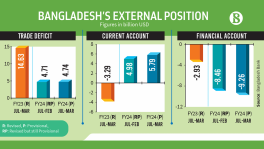Apple takes a stand on design.
Just as at every Apple event, every detail of the new Mac Pro was greeted with whoops and cheers - until it came to the price of one accessory. When they realised that they were being asked to pay $999 (£784) for a simple monitor stand, the crowd at the Worldwide Developers Conference (WWDC) fell silent.

On Tech Tent this week we ask whether the sky-high price for a low-tech product shows Apple has lost touch with reality.
The $5999 price of the computer itself - or even the $4999 for the display - did not shock the audience. After all, these are high-end products aimed primarily at customers in the design and video production world.
But breaking out $999 for the stand, rather than bundling it with the monitor, felt arrogant - as if Apple was assuming its loyal fans would pay any price for anything bearing its logo.
Of course it has already tested that theory with recent models of the iPhone climbing above the $1000 or, indeed, the £1000 mark. And if you want a Mac laptop, the entry-level MacBook Air now starts at $1199, or £1199 in the UK.
Carolina Milanesi, of Creative Strategies, tells us the revolt against these kind of prices may start in Europe, rather than the United States. She believes European consumers are concerned not so much about the cost of the hardware itself, but the services that come with their devices.
"The value that a consumer gets in the US is far superior to what they get elsewhere," she says. "The services' rollout, from music to Apple Pay, and now the TV service, is not equal."
Ms Milanesi says the argument that you get plenty of extra value for the £1000 you pay for the phone does not stand up if you don't receive parity of service.
Which brings us to the other big announcement from WWDC: the demise of iTunes, with users now diverted to Apple Music, Apple TV and the podcasts app.
As someone who reported on the 2004 launch of the iTunes Store in the UK, interviewing both Steve Jobs and Alicia Keys, the scrapping of the media software was a nostalgic moment. The arrival of iTunes was the moment it became clear that the technology industry, rather than record labels, would decide the music business's future.
But in recent years, iTunes turned into a clunky, bug-ridden mess - somehow signalling that Apple has struggled to keep up as the world moved away from downloads to streaming as their preferred means of consuming music and video.
Now a business which has made huge profits from hardware is shifting its focus to services, with some success.
But if consumers really are to continue to be drawn into the Apple ecosystem and to continue spending money on services on their iPhones, iPads and MacBook Airs, then the price of entry may have to come down.


 Keep updated, follow The Business Standard's Google news channel
Keep updated, follow The Business Standard's Google news channel
















